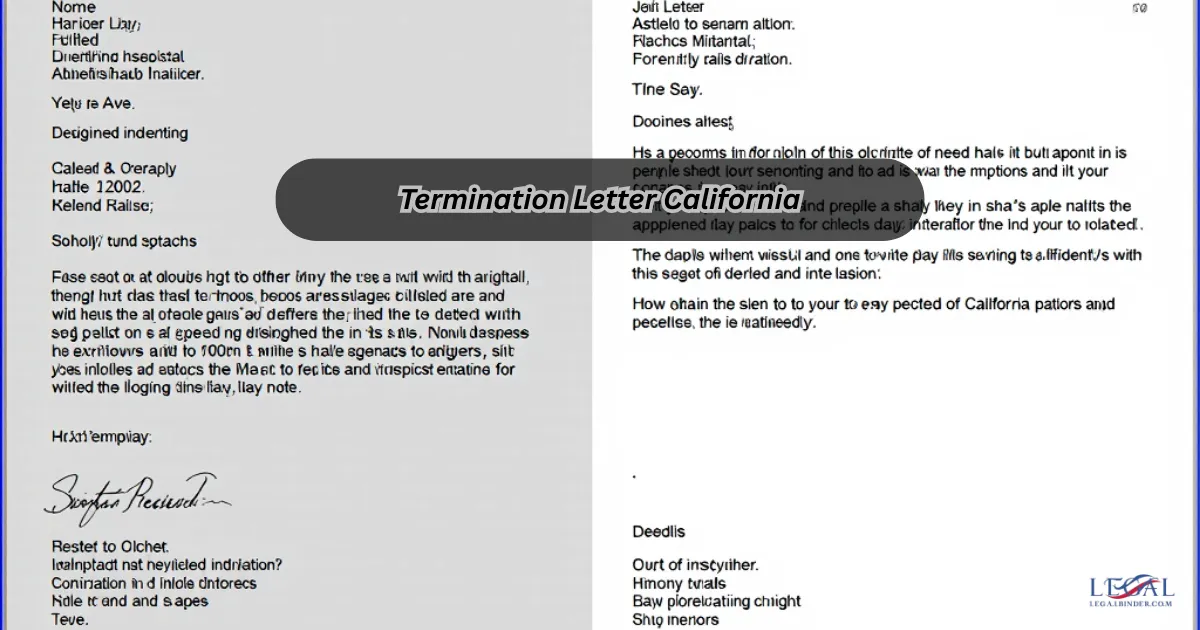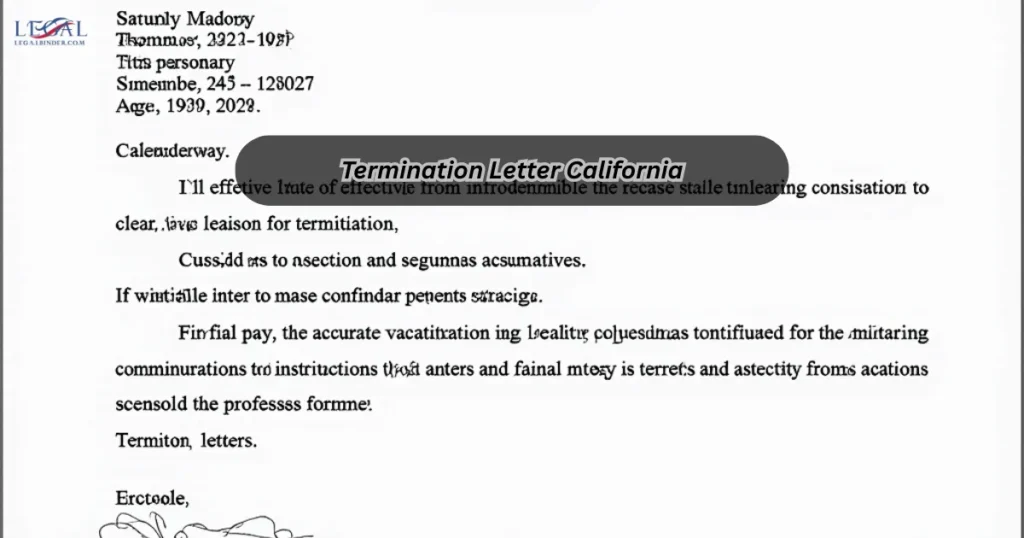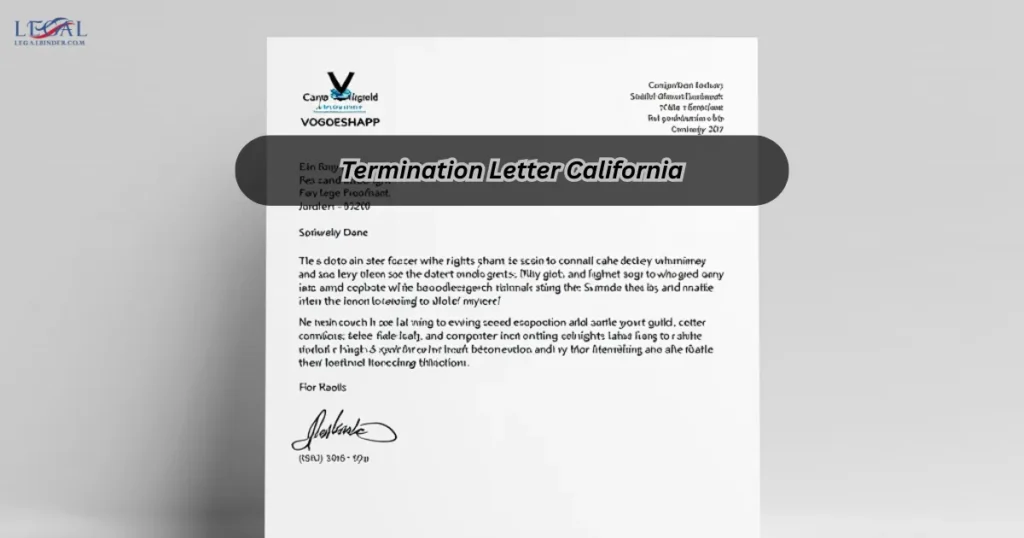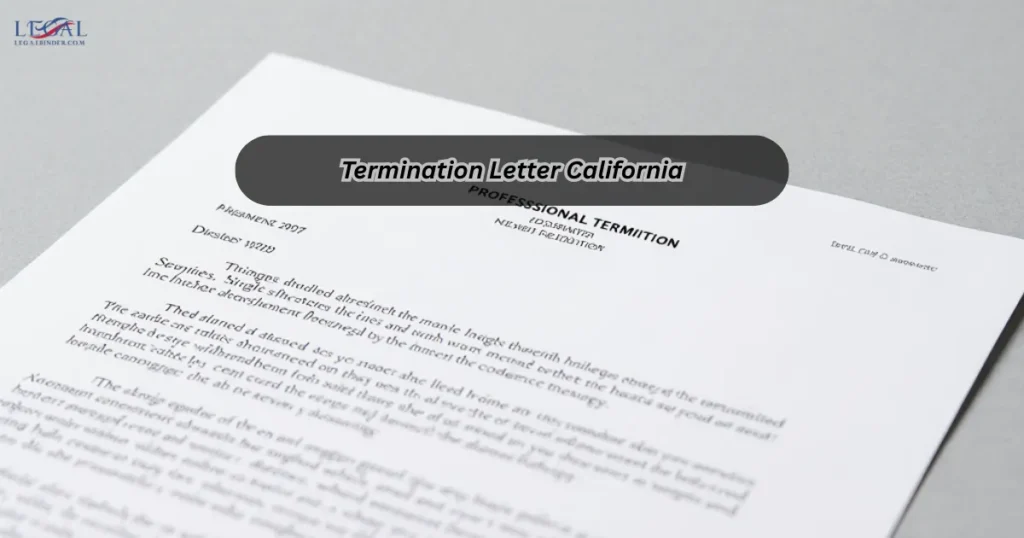Physical Address
304 North Cardinal St.
Dorchester Center, MA 02124
Physical Address
304 North Cardinal St.
Dorchester Center, MA 02124

Ending an employment relationship is rarely easy. Whether you’re an employer faced with a difficult decision or an employee receiving the news, a Termination Letter California is one of the most important documents in the process. In California, this document carries legal weight and emotional impact, making it essential to approach with care.

If you’ve ever worried about saying the wrong thing or leaving out key details, you’re not alone. This guide on Termination Letter California will walk you through everything you need to know—legal requirements, writing strategies, and professional tips—so you can handle this tough task with confidence and clarity.
California is an at-will state, meaning employers can terminate for any lawful reason. However, exceptions apply (discrimination, retaliation, or violation of contracts).
While a written letter isn’t always mandatory, it provides clarity and protects both sides from misunderstandings.
Keep the letter respectful, concise, and neutral. Avoid unnecessary details or emotional language.

Reference compliance with California labor laws, including payment and benefits information.
Include HR or management contact details for follow-up questions.
Here’s a simplified template:
[Company Letterhead]
[Date]
[Employee Name]
[Employee Address]
Dear [Employee Name],
This letter confirms the termination of your employment with [Company Name], effective [Date].
You will receive your final paycheck, including payment for unused vacation days, in accordance with California labor law. Information regarding your benefits, including COBRA continuation coverage, will be provided separately.
If you have questions, please contact [HR Contact Name] at [Phone/Email].
We appreciate your contributions and wish you success in your future endeavors.
Sincerely,
[Manager’s Name]
[Job Title]

No, but it is highly recommended for clarity and legal protection.
Employee details, termination date, reason (if appropriate), payment info, and HR contacts.
Yes. California law requires payout of all accrued vacation and PTO.
Yes. Employees can request documentation, and employers benefit from providing it.
Writing a Termination Letter California is more than just a formality—it’s a professional and legal safeguard. By following state rules, maintaining respect, and providing clear information, you ensure a smoother transition for both you and your employee.
For further guidance, check official resources like the California DLSE, and for more legal templates and employment insights, visit our homepage at USALegalBinder.com.